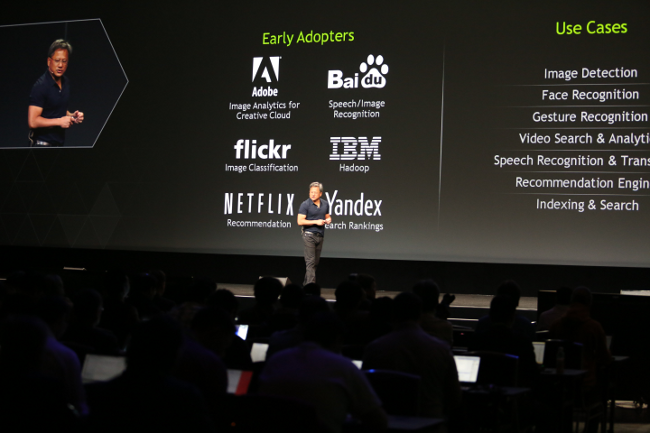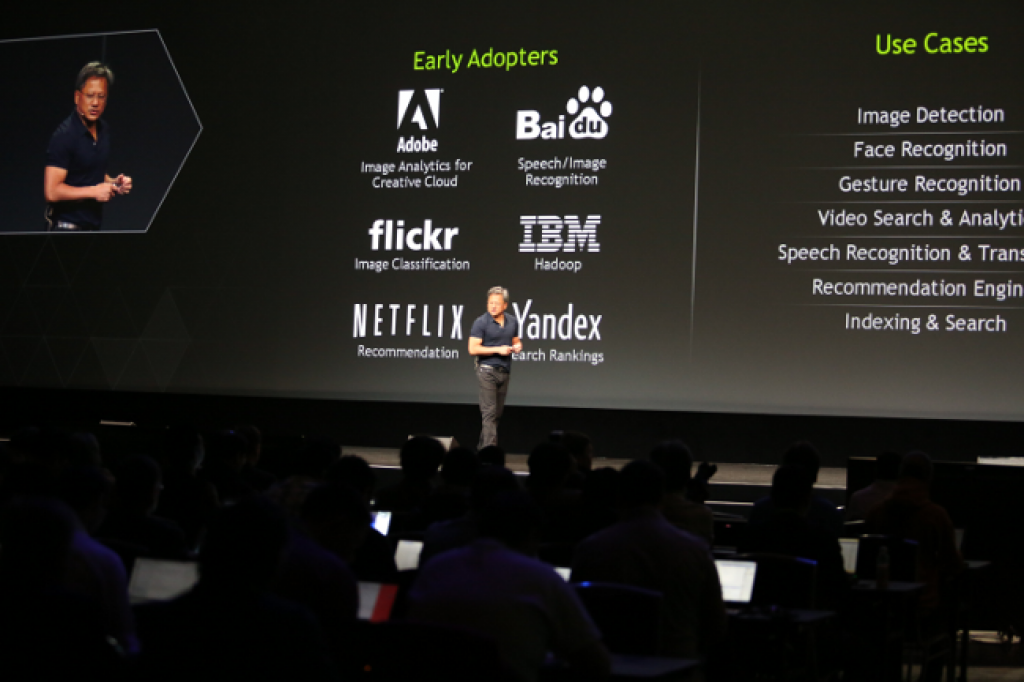This article was originally published at NVIDIA's blog. It is reprinted here with the permission of NVIDIA.
Adobe, Baidu, Netflix, Yandex. Some of the biggest names in social media and cloud computing use NVIDIA CUDA-based GPU accelerators to provide seemingly magical search, intelligent image analysis and personalized movie recommendations, based on a technology called advanced machine learning.
Machine learning is just what it sounds like: training computers to teach themselves by sifting through data – for example, learning to identify a fox by analyzing lots of images of dogs, ferrets, jackals, raccoons and other animals, including foxes. Just how people learn.
While this is a powerful tool, machine learning algorithms can require thousands of CPU-based servers to review staggering amounts of data. That’s expensive, unrealistic and impractical. But, it’s a job that’s well suited for Tesla GPU accelerators. They’re extra-strength versions of the chips originally built to help gamers blast through hordes of digital aliens, and now widely used to tackle a broad variety of visual computing problems quickly and efficiently.
Accelerating Adobe Image Analysis
If you work with images or video, you use Adobe software every day. Adobe Creative Cloud today enables more than 1.8 million users to access its tools – including GPU-accelerated applications like Premiere Pro, After Effects, and Photoshop – from virtually anywhere in the world. Now Adobe’s R&D team is pushing Creative Cloud to do more, by using CUDA GPUs to help build deep learning image processing tools.

Deep learning may be a forbidding term, but future Adobe tools could use this technology to drive new creative possibilities. For example, applications might be able to automatically identifying a particular font style from images to help users choose just the right one for their own creative project. They might even help identify image sentiments and stylistic elements in a piece of work to help users quickly find more images that convey a similar mood or unique aesthetic.
David Howe, director of Digital Imaging Engineering at Adobe, said: “Our move to Creative Cloud has kick-started a new era of innovation across Adobe. GPU-accelerated machine learning opens the door to exciting new features and capabilities that can speed the creative process and make your work stand out from the crowd.”
Netflix, Baidu, Yandex
Other web-service companies from around the world are taking similar steps:
- Netflix is field-testing recommendations generated by a GPU-trained neural network to analyze its 40 million streaming service subscribers’ movie-watching patterns. The goal: to more accurately identify new films users will like, and making recommendations that improve over time.
- Baidu, China’s largest search and web services company, is one of the earliest and most aggressive companies to deploy deep learning-based products. Its products range from speech recognition and translation, OCR (optical character recognition), facial and object recognition, content-based image retrieval and online ad optimization. Baidu has been using NVIDIA GPUs to train their huge deep neural network with massive amounts of data, which greatly improves the user experience.
- Yandex, Russia’s most popular search engine, is the first to use NVIDIA Tesla GPUs broadly in production to improve the quality of ranking web search results. Using a GPU accelerator, Yandex is able to train ranking models 20 times faster compared to CPUs to deliver the most relevant search results to Yandex’s 81 million monthly web search users.


